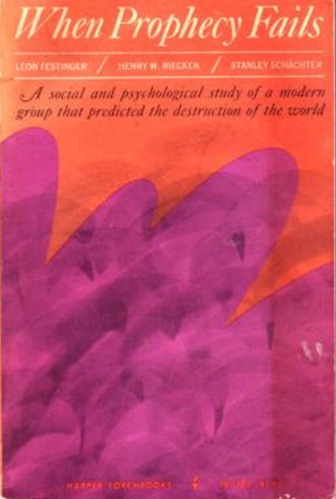
–>
July 18, 2023
It’s a question that most Americans who follow the news ask themselves daily: “How can the residents of so many of the nation’s largest cities keep supporting local officials who tolerate the ongoing destruction of their communities?”
‘); googletag.cmd.push(function () { googletag.display(‘div-gpt-ad-1609268089992-0’); }); document.write(”); googletag.cmd.push(function() { googletag.pubads().addEventListener(‘slotRenderEnded’, function(event) { if (event.slot.getSlotElementId() == “div-hre-Americanthinker—New-3028”) { googletag.display(“div-hre-Americanthinker—New-3028”); } }); }); }
Why this May, for example, did the citizens of Chicago — a city where 21,000 students cannot demonstrate a basic competence in reading, science, and math — choose the teachers union-backed candidate, Brandon Johnson, for mayor? Especially when Johnson’s chief opponent, Paul Vallas, had promised the electorate sensible school reforms?
Why, a few years earlier, did San Franciscans elect a mayor, London Breed, whose obvious reluctance to crack down on criminal behavior has since forced the city’s largest mall to close, two of its best hotels to declare bankruptcy, and tens of thousands of high-earning taxpayers to move away?
Why has there been no serious movement to get New York Gov. Kathy Hochul to initiate proceedings to remove Alvin Bragg, the Manhattan district attorney who refuses prosecute “low-level” crimes, all while promising to downgrade felony charges and to decriminalize resisting police arrest?
‘); googletag.cmd.push(function () { googletag.display(‘div-gpt-ad-1609270365559-0’); }); document.write(”); googletag.cmd.push(function() { googletag.pubads().addEventListener(‘slotRenderEnded’, function(event) { if (event.slot.getSlotElementId() == “div-hre-Americanthinker—New-3035”) { googletag.display(“div-hre-Americanthinker—New-3035”); } }); }); }
And why, in 2022, did Los Angelinos pick another progressive Democrat to be their next mayor, rather than the candidate who promised to finally do something about the city’s exploding homelessness problem?
In 1954, three academic psychologists — Stanford University’s Leon Festinger along with Henry Riecken and Stanley Schachter — described a very different kind of social dysfunction, but one that helps us understand why so many urban Americans refuse to demand saner government. As reported in the still-widely read college text When Prophesy Fails, Festinger and his colleagues followed the activities of a religious cult, whose leader claimed to have received messages from the planet Clarion. These communications warned of a massive flood that would engulf a wide area around Salt Lake City on December 21 of that year and promised that those who heeded the alert would be rescued by an alien spacecraft just before catastrophe struck.
As researchers specializing in what has come to be known as “cognitive dissonance” — the tension between what one believes will happen and what really transpires — the three psychologists saw the alien prophesy as a rare chance to observe people who were clearly committed to a very unlikely outcome. Some in the cult had already left their jobs so they could escape danger on the Clarion ship, while others had ended relationships, given away their savings, or sold their possessions. All the researchers had to do was to quietly infiltrate the group and record the responses to the failed prophecy.
Unsurprisingly, the cult members’ initial reaction to the anticlimactic events of December 21 was to wonder whether their leader had unintentionally misread the original alien messages. Maybe she had gotten the wrong day. Or perhaps even the year.
The interesting development was what happened later. For while some who had been loosely attached to the cult from the beginning started to drift away from the group, those with stronger beliefs became even more convinced of the initial prophesy, variously rationalizing the lack of a flood and even seeking out new converts. Some went to TV and newspaper reporters with periodic predictions of a rescheduled alien landing, while the leader herself kept trying to contact Clarion extraterrestrials right up until her death in 1992.
 The lesson of Festinger et al’s 1954 study for our own time is that when people encounter information which contradicts their view of reality, many will adjust their thinking to logically accommodate what has happened. But those with stronger convictions will do the exact opposite, entertaining even the most far-fetched ideas to preserve some semblance of their original beliefs.
The lesson of Festinger et al’s 1954 study for our own time is that when people encounter information which contradicts their view of reality, many will adjust their thinking to logically accommodate what has happened. But those with stronger convictions will do the exact opposite, entertaining even the most far-fetched ideas to preserve some semblance of their original beliefs.
‘); googletag.cmd.push(function () { googletag.display(‘div-gpt-ad-1609268078422-0’); }); document.write(”); googletag.cmd.push(function() { googletag.pubads().addEventListener(‘slotRenderEnded’, function(event) { if (event.slot.getSlotElementId() == “div-hre-Americanthinker—New-3027”) { googletag.display(“div-hre-Americanthinker—New-3027”); } }); }); } if (publir_show_ads) { document.write(“
According to cognitive dissonance theory, it should come as no surprise that large numbers of city dwellers — the bluest of all Americans, according to polls — should react to the seeming failure of left-wing social programs by becoming even more progressive. In the case of crime, what might seem to someone from a small town in Iowa like an obvious reason to enforce existing law becomes for the urban liberal a reason to identify even more closely with the “plight” of those “involuntarily reduced” to wrongdoing. Or in the case of K-12 education, declining test scores are not a reason to raise academic standards, but to decry such solutions as “white propaganda” and to focus instead on teaching schoolchildren about racial and gender inequities.
The good news about this psychological explanation for urban decay is that it does offer some hope for an eventual reversal. It tells us that those city dwellers who continue to vote for increasingly irrational policies are doing so, not (as they say) because of a progressive vision they claim to be drawn to, but because of what they are trying to escape: growing evidence that their political beliefs are untrue or unsustainable.
And the more extreme the ideology which urban voters must adopt to justify once-favored social policies, the fewer who will be able to keep doing so over the long run. The dwindling number of those who can simply end up becoming isolated and less influential.
The bad news about this outcome is that, while inevitable, it can take a lot of time, especially if many city voters are affluent enough to shield themselves from the consequences of bad policymaking. Or if they work for any of the misguided government agencies which are contributing to their city’s decline. As the early twentieth-century writer Upton Sinclair famously observed, it is more “difficult to get a man to understand something, when his salary depends on his not understanding it.”
The only thing that can accelerate the decline of urban progressivism, according to cognitive dissonance theory, is some event that invites outside intervention. If, for example, the exodus of a city’s more sensible residents combined with deteriorating business conditions were to create a financial crisis. That is when the state or federal officials could step in with bridge loans conditioned upon the city adopting fewer progressive policies.
Left-wing voters would undoubtedly complain that they are being forced to accept “unconscionable,” “inhumane,” and “racist” programs in return for a bailout, just as many New Yorkers did when both the state and Congress helped the Big Apple through its 1975 fiscal crisis. But what these same voters will never admit — indeed, what they likely will never let themselves realize — is that they have been given the gift of being able to say that their progressive ideas “could have worked, if only they had been given enough time to.”
They can keep their ideology, in other words, without having to self-destructively implement it.
Image: Harper Torchbooks
<!–
–>
<!– if(page_width_onload <= 479) { document.write("
“); googletag.cmd.push(function() { googletag.display(‘div-gpt-ad-1345489840937-4’); }); } –> If you experience technical problems, please write to [email protected]
FOLLOW US ON
<!–
–>
<!– _qoptions={ qacct:”p-9bKF-NgTuSFM6″ }; ![]() –> <!—-> <!– var addthis_share = { email_template: “new_template” } –>
–> <!—-> <!– var addthis_share = { email_template: “new_template” } –>





